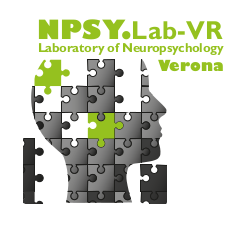Authors
Gambina G, Bonazzi A, Valbusa V, Condoleo M, Bortolami O, Broggio E, Sala F, Moretto G, Moro V.
Abstract
Awareness of cognitive deficits and clinical competence were investigated in 79 mild to moderate Alzheimer’s disease patients. Awareness was assessed by the anosognosia questionnaire for dementia, and clinical competence by specific neuropsychological tests such as trail making test-A, Babcock story recall test, semantic and phonemic verbal fluency. The findings show that 66 % of the patients were aware of memory deficits, while the 34 % were unaware. Deficit in awareness correlated with lower scores on the Mini Mental State Examination test that, in the score range from 24.51 to 30 and from 19.50 to 24.50, appeared to be a significant predictor of level of awareness. None of the AD patients had fully preserved clinical competence, only 7 patients (9 %) had partially preserved clinical competence and 72 patients (91 %) had completely lost clinical competence. All the patients with partially preserved clinical competence (9 %) were aware of their memory deficit. The study indicates that neuropsychological tests used for the assessment of executive functions are not suitable for investigating clinical competence. Therefore, additional and specific tools for the evaluation of clinical competence are necessary. Indeed, these might allow clinicians to identify AD patients who, despite their deficits in selected functions, retain their autonomy of choice as well as recognize those patients who should proceed to the nomination of a legal representative.
